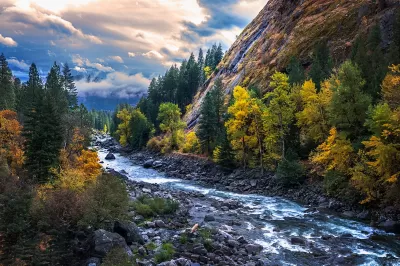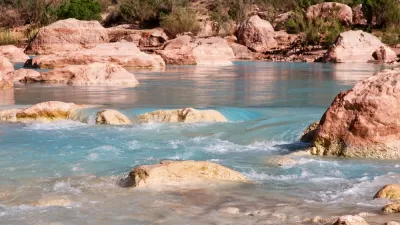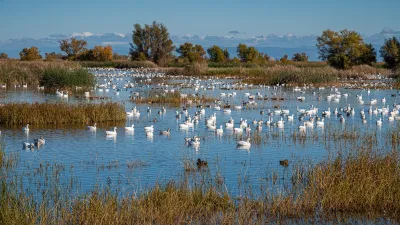The Clean Water Act mandates reporting of ‘impaired waters’ to support conservation and restoration efforts.

A new report from the Government Accountability Office (GAO) reveals that Washington state is years behind on reporting polluted waterways. In an article for High Country News, Kylie Mohr describes the requirements set out by the Clean Water Act, which “requires each state to maintain a list of water bodies that don’t meet federal standards and submit an update to the Environmental Protection Agency every two years.” The lists are designed to help government agencies and the public understand local conditions and risks and prioritize cleanup efforts.
According to the GAO report, Washington has missed submission deadlines since 2012. “State officials attributed the backlog to the number and complexity of Washington’s water bodies and the amount of data collected by other agencies, saying it takes time to bring everything together.” The state also consults with dozens of tribal communities affected by conservation efforts.
Washington Department of Ecology Director Laura Watson, in a written response to the report, said “Ecology disagrees with the report’s focus on the timeliness of the state’s impaired waters lists as a key component of salmon recovery in Washington.”
FULL STORY: Washington lags behind in water-pollution oversight

Study: Maui’s Plan to Convert Vacation Rentals to Long-Term Housing Could Cause Nearly $1 Billion Economic Loss
The plan would reduce visitor accommodation by 25,% resulting in 1,900 jobs lost.

North Texas Transit Leaders Tout Benefits of TOD for Growing Region
At a summit focused on transit-oriented development, policymakers discussed how North Texas’ expanded light rail system can serve as a tool for economic growth.

Why Should We Subsidize Public Transportation?
Many public transit agencies face financial stress due to rising costs, declining fare revenue, and declining subsidies. Transit advocates must provide a strong business case for increasing public transit funding.

How Community Science Connects People, Parks, and Biodiversity
Community science engages people of all backgrounds in documenting local biodiversity, strengthening connections to nature, and contributing to global efforts like the City Nature Challenge to build a more inclusive and resilient future.

Alabama: Trump Terminates Settlements for Black Communities Harmed By Raw Sewage
Trump deemed the landmark civil rights agreement “illegal DEI and environmental justice policy.”

Dear Tesla Driver: “It’s not You, It’s Him.”
Amidst a booming bumper sticker industry, one writer offers solace to those asking, “Does this car make me look fascist?”
Urban Design for Planners 1: Software Tools
This six-course series explores essential urban design concepts using open source software and equips planners with the tools they need to participate fully in the urban design process.
Planning for Universal Design
Learn the tools for implementing Universal Design in planning regulations.
City of Santa Clarita
Ascent Environmental
Institute for Housing and Urban Development Studies (IHS)
City of Grandview
Harvard GSD Executive Education
Toledo-Lucas County Plan Commissions
Salt Lake City
NYU Wagner Graduate School of Public Service





























